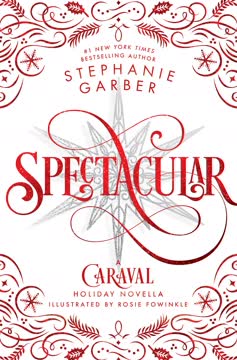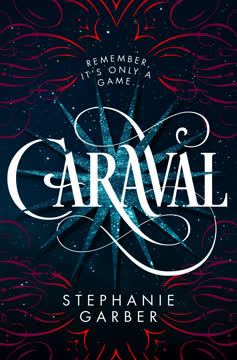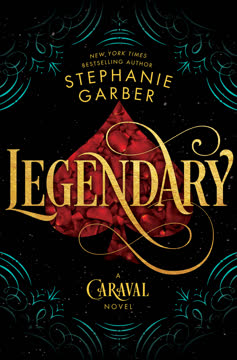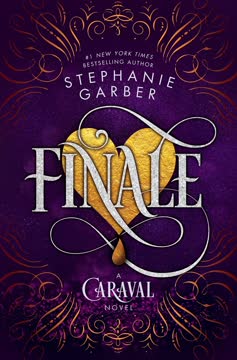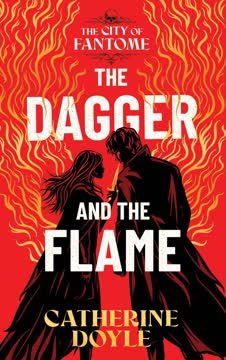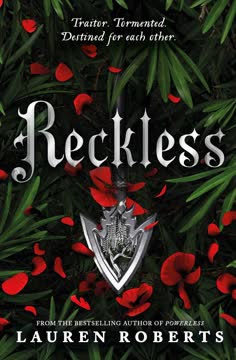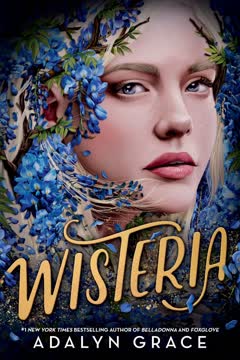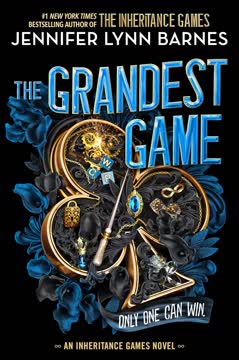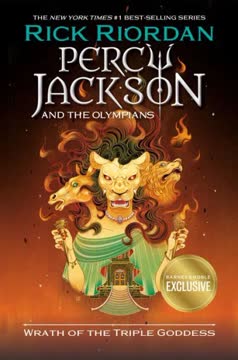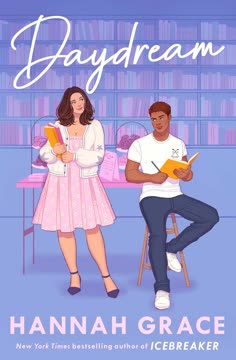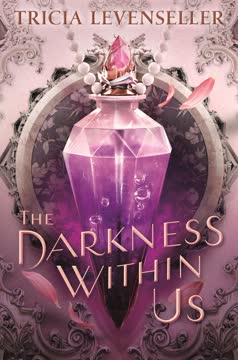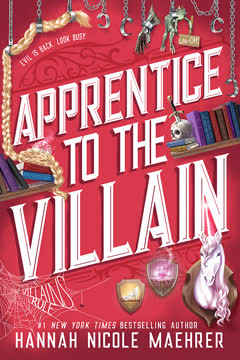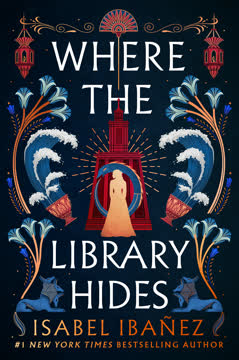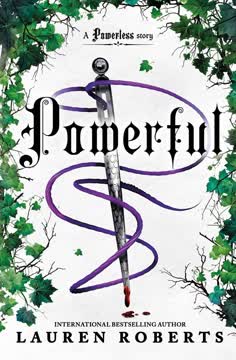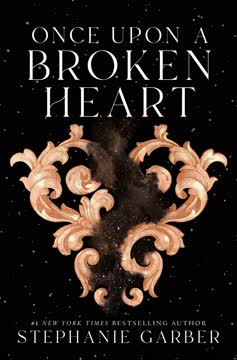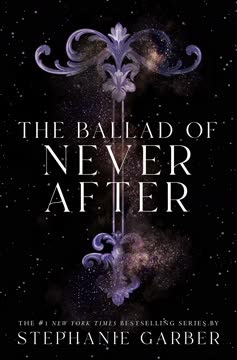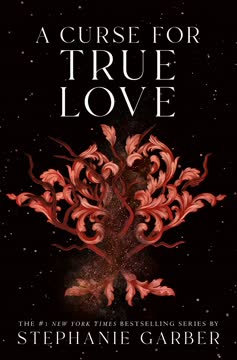Plot Summary
Invitations and Holiday Magic
In the city of Valenda, mysterious snow-white boxes appear at noon, each containing a magical invitation to Empress Scarlett's Great Holiday celebration. The city is swept up in anticipation and joy, as the invitations ignite a sense of wonder and possibility. The holiday itself, rooted in the traditions brought by Princess Infinity Larkspur, is a time for celebration, giving, and dreams. The arrival of these invitations marks the beginning of a story where magic, love, and holiday spirit intertwine, setting the stage for a fantastical adventure.
Snow Globe Enchantment
As the Great Holiday approaches, Valenda is transformed into a swirling snow globe, both literally and metaphorically. Ships stop arriving at the port, unnoticed by most in their festive haze. The city is under a magical dome, isolating it from the outside world and heightening the sense of enchantment. This magical setting is both beautiful and slightly ominous, foreshadowing the extraordinary events to come and the blurring of reality and illusion that defines the story.
Sisters and Holiday Wishes
Donatella (Tella) Dragna, the impulsive and passionate younger sister, navigates her sister Scarlett's extravagantly decorated palace. Scarlett, now Empress, is determined to create the perfect holiday, fulfilling childhood dreams she never realized under their oppressive father. Tella, however, is preoccupied with a personal crisis: she desperately needs the perfect gift for her lover, Legend, fearing their relationship is slipping away. The sisters' dynamic—Scarlett's nurturing caution and Tella's reckless longing—sets up the emotional stakes of the story.
The Gift Dilemma
Tella's fear that her love for Legend is unreciprocated drives her to obsession over finding the perfect present. Legend, once immortal, has become vulnerable for her, and Tella worries he regrets this sacrifice. The pressure to prove her love and secure their bond is compounded by the holiday's emphasis on meaningful gifts. Tella's quest is not just about a present, but about affirming her place in Legend's heart and her own self-worth.
Searching for the Perfect Present
With time running out, Tella scours Valenda's holiday markets, but nothing feels special enough for Legend. Scarlett suggests the legendary Garland Street, home to Mr. Garland's Toy Chest, a magical shop open only one day a year. The shop's mysterious history and the promise of unique, enchanted gifts lure Tella into a world where reality and fantasy blur, and where the search for a gift becomes a journey of self-discovery.
Garland Street's Secrets
Garland Street is a place out of time, existing only for the holiday. Its shops are pristine yet oddly unreal, and the famed Toy Chest is filled with lifelike toys and clockwork wonders. Tella's encounter with a clockwork boy offering magical candy sets off a chain of events that lead her away from safety and deeper into the story's central mystery. The street's enchantment is both alluring and dangerous, reflecting Tella's own conflicted desires.
Legend's Distance
Tella's brief meeting with Legend on Garland Street is fraught with tension. He is distant, claiming disinterest in the holiday and gifts, which only heightens Tella's insecurity. Misguided by a self-help booklet, Tella withholds her true feelings, fearing vulnerability. Legend's enigmatic behavior and Tella's inability to communicate openly create a rift, propelling her into reckless decisions and setting up the story's central romantic conflict.
Clockwork Candy Trap
Distraught after Legend leaves, Tella is approached by the clockwork boy, who offers her a candy star that promises to reveal her true love. Succumbing to temptation, Tella eats the candy and is immediately drugged and robbed, awakening in Valenda's dangerous Spice Quarter. This turning point marks her descent into a world of illusion and peril, where her quest for love and meaning becomes a literal struggle for survival.
Lost in the Spice Quarter
Disoriented and alone, Tella finds herself in the city's seedy underbelly, far from the holiday's warmth. She stumbles upon a fake Caraval audition, lured by rumors of Legend's involvement. The setting is grim and exploitative, a stark contrast to the magical festivities above. Tella's determination to uncover the truth and protect Legend's legacy drives her to infiltrate the audition, even as she senses she is being manipulated.
The Imposter's Audition
Forced into a humiliating costume and paraded on stage, Tella confronts the so-called "Legend," whose magic feels both familiar and threatening. She is singled out and taken captive, her wrists bound and eyes blindfolded. The imposter's game is seductive and dangerous, blurring the line between play and peril. Tella's captivity becomes a test of her wits, courage, and the depth of her feelings for Legend.
Captive in Red and Green
Blindfolded and bound, Tella is subjected to the imposter's taunts and advances. The power dynamic is fraught with tension, as Tella struggles to maintain agency and discern the truth. The imposter's knowledge of her insecurities—gleaned from her self-help booklet—deepens her vulnerability. Yet, Tella's resilience and resourcefulness begin to turn the tables, as she negotiates for her freedom and seeks to unmask her captor.
Blindfolded Bargains
The imposter proposes a game: if Tella wins, she will be freed; if not, she remains his captive. Their interaction is charged with desire and psychological gamesmanship, culminating in a passionate, blindfolded kiss. When Tella removes her blindfold, she is plunged into darkness, abandoned and alone. The experience forces her to confront her fears and doubts, both about herself and her relationship with Legend.
The Book of Bad Advice
Alone in her cell, Tella is taunted by her captor reading aloud from her self-help booklet, exposing her deepest anxieties about love and worthiness. The humiliation is acute, but it also becomes a moment of clarity. Tella realizes the folly of seeking validation through gifts or external approval. Her journey shifts from winning Legend's love to reclaiming her own sense of agency and self-acceptance.
The Game Revealed
After a night of captivity and introspection, Tella awakens in a luxurious, unfamiliar room. She is presented with three gifts: armor, a dazzling gown, and her own annotated self-help booklet. Burning the booklet, Tella symbolically rejects her old fears and prepares to face her captor on her own terms. The stage is set for the final confrontation, where love, identity, and magic will be tested.
Holiday Ball Without Tella
While Tella is missing, Scarlett's Great Holiday Ball unfolds in a blaze of joy and spectacle. The city's elite gather in a ballroom of light and laughter, oblivious to Tella's absence. Scarlett's love for Julian is celebrated, and the holiday's spirit of hope and wonder is palpable. The contrast between the sisters' experiences underscores the story's themes of longing, belonging, and the search for true connection.
The Glass Dome Challenge
Emerging from her room in a spectacular gown, Tella finds herself in a glass dome, surrounded by magical snow and moonlight. She is presented with a series of gifts and notes, each a clue in the ongoing game. The presence of a shadowy figure—finally revealed as Legend—confirms that the entire ordeal was an elaborate test of love and trust. Tella's journey culminates in a moment of vulnerability and recognition, as she embraces both her own worth and Legend's love.
Love's True Gift
Tella and Legend are reunited in the magical dome, their love affirmed through trials and misunderstandings. The elaborate game, orchestrated by Legend (with help from Scarlett), was designed to show Tella that love is not proven by gifts or grand gestures, but by trust, vulnerability, and shared experience. The couple's reconciliation is passionate and heartfelt, marking the true "spectacular" of the holiday.
Spectacular Holiday's End
As the Great Holiday concludes, Tella and Legend's love is stronger for having been tested. The city's enchantment lifts, and the sisters are reunited, each having realized the importance of authenticity, courage, and connection. The story ends with a sense of wonder and renewal, as the characters embrace the magic of the holiday—and of love itself.
Characters
Donatella (Tella) Dragna
Tella is the emotional heart of the story, driven by a fierce desire to be loved and understood. Her relationship with Legend is fraught with insecurity, stemming from his enigmatic nature and her own fear of not being enough. Tella's journey is one of self-discovery: she moves from seeking external validation (through the perfect gift) to realizing that love is not a competition or a performance. Her impulsiveness leads her into danger, but her resilience and wit ultimately allow her to reclaim agency and embrace vulnerability. Tella's dynamic with her sister Scarlett is both supportive and competitive, highlighting the complexities of familial love.
Legend (Dante Santos)
Legend, the former immortal master of Caraval, is both a figure of myth and a man grappling with the consequences of love. His decision to give up immortality for Tella has left him emotionally exposed, and he struggles to balance his magical persona with genuine intimacy. Legend orchestrates the elaborate "game" to test and reassure Tella, but also to confront his own fears of inadequacy. His love for Tella is deep, if sometimes obscured by misdirection and pride. Legend's arc is about learning to communicate and trust, moving beyond illusion to authentic connection.
Scarlett Dragna
Scarlett, now Empress, embodies the spirit of the Great Holiday—hope, joy, and the fulfillment of childhood dreams. Her devotion to Tella is unwavering, though she often struggles to balance her sister's recklessness with her own need for order and safety. Scarlett's relationship with Julian is a model of mature, supportive love, contrasting with Tella's more tumultuous romance. Scarlett's role as both ruler and sister highlights the tension between public duty and private longing.
Julian Santos
Julian, Legend's brother and Scarlett's lover, provides comic relief and emotional grounding. His easy confidence and devotion to Scarlett offer a counterpoint to Legend's brooding intensity. Julian's insights into Legend's character help Tella navigate her own doubts, and his playful banter with Scarlett adds warmth to the narrative. Julian's presence reinforces the theme that love, while sometimes complicated, can also be joyful and sustaining.
The Clockwork Boy
The clockwork boy is both a literal and symbolic trickster, luring Tella into danger with promises of magical solutions to her romantic woes. He represents the seductive allure of shortcuts and easy answers, as well as the risks of surrendering agency. His actions catalyze Tella's journey into the Spice Quarter and the heart of the story's central mystery.
The Imposter Legend
The imposter, who kidnaps and tests Tella, is a manifestation of her fears and desires. His identity is ambiguous, blending elements of Legend's magic with the threat of deception. The imposter's psychological games force Tella to confront her insecurities and ultimately lead her to a deeper understanding of herself and her relationship with Legend.
Scarlett and Julian's Relationship
Their partnership is characterized by mutual respect, playfulness, and unwavering support. They serve as a foil to Tella and Legend, demonstrating that love can be both passionate and stable. Their dynamic provides hope and reassurance, anchoring the story's more tumultuous elements.
Mr. Garland
The legendary toymaker of Garland Street, Mr. Garland represents the magic of giving and the enduring power of wonder. Though he never appears directly, his legacy shapes the story's setting and themes, reminding characters and readers alike of the importance of imagination and generosity.
Aiko
Aiko, the Caraval histographer, appears at the holiday ball, offering cryptic advice and glimpses of possible futures. Her presence reinforces the story's themes of fate, choice, and the interplay between magic and reality.
The Booklet ("How Not to Lose the Love of Your Life")
The self-help booklet is both a plot device and a psychological mirror, exposing Tella's deepest fears and the dangers of seeking external validation. Its eventual destruction marks a turning point in Tella's journey toward self-acceptance and authentic love.
Plot Devices
Magical Realism and Enchanted Setting
The story's world is suffused with enchantment: Valenda becomes a literal snow globe, invitations appear magically, and Garland Street exists only for a day. This magical realism heightens the stakes and allows for narrative surprises, while also serving as a metaphor for the characters' emotional states—trapped, isolated, and longing for connection.
The Game Structure
The central narrative device is the "game" orchestrated by Legend, in which Tella is kidnapped, blindfolded, and forced to navigate a series of trials. This structure mirrors the Caraval tradition of illusion and performance, but with higher emotional stakes. The game becomes a crucible for Tella's growth, forcing her to confront her fears and ultimately choose vulnerability over control.
Misdirection and Illusion
The story is rife with red herrings—imposters, magical toys, and ambiguous motives. Readers, like Tella, are kept guessing about what is real and who can be trusted. This narrative uncertainty reflects the characters' internal doubts and the broader theme that love requires faith in the face of uncertainty.
Symbolic Objects
Physical objects—magical gifts, humiliating costumes, the self-help booklet—serve as symbols of the characters' desires, fears, and transformations. The act of burning the booklet, donning the gown, or opening a letter becomes a ritual of self-acceptance and renewal.
Interplay of Light and Darkness
The story juxtaposes the warmth and light of the holiday ball with the darkness and danger of Tella's captivity. This contrast underscores the central message: true love and joy are not found in perfection or spectacle, but in the willingness to face darkness together.
Analysis
"Spectacular" reimagines the holiday romance as a magical game of trust, where the greatest gift is not a perfect present, but the courage to be seen and loved as one truly is. Stephanie Garber uses the trappings of fantasy—enchanted cities, magical toys, and elaborate games—to explore deeply human fears: the anxiety of not being enough, the temptation to seek validation through grand gestures, and the difficulty of trusting in love's endurance. The novella critiques the commercialization and performativity of holidays, urging readers to reject superficial measures of worth in favor of authenticity and connection. Through Tella's journey, the story affirms that love is not a prize to be won or a test to be passed, but a choice to be made—again and again, even in the face of doubt. In a world obsessed with spectacle, "Spectacular" reminds us that the most magical moments are those when we let down our guard and allow ourselves to be truly known.
Last updated:
FAQ
Synopsis & Basic Details
What is Spectacular about?
- A Princess's Quest: Spectacular follows Princess Donatella "Tella" Dragna as she desperately searches for the perfect Great Holiday gift for her enigmatic lover, Legend, fearing their relationship is faltering. Her quest leads her through Valenda's magically transformed streets, from festive markets to the mysterious Garland Street.
- Holiday Magic & Intrigue: Set during the enchanting Great Holiday, the story immerses readers in a world where Valenda itself becomes a giant snow globe, filled with whimsical decorations, carolers, and a pervasive sense of wonder. However, Tella's journey quickly veers into unexpected danger and deception, blurring the lines between holiday cheer and sinister games.
- Love, Doubt, & Self-Discovery: At its heart, the novella explores themes of love, vulnerability, and self-worth. Tella's anxieties about Legend's feelings, fueled by a misguided self-help booklet, propel her into a series of trials that force her to confront her deepest insecurities and ultimately discover what true love and self-acceptance truly mean.
Why should I read Spectacular?
- Immersive Holiday Fantasy: Readers seeking a unique blend of festive cheer and dark fantasy will find Spectacular captivating. Stephanie Garber's signature magical realism transforms a traditional holiday setting into an unpredictable, enchanting world, perfect for those who love whimsical yet thrilling narratives.
- Deep Emotional Resonance: Beyond the magic, the story offers a poignant exploration of relationship anxieties and personal growth. Tella's relatable struggle with self-doubt and her journey to understand authentic love make the narrative emotionally compelling, resonating with anyone who has questioned their worth in a relationship.
- Caraval Series Connection: For fans of the Caraval series, Spectacular provides a delightful return to the beloved world of Legend and the Dragna sisters. It offers deeper insights into Tella and Legend's complex romance, expanding on their dynamic and the consequences of their past choices, making it a must-read for series enthusiasts.
What is the background of Spectacular?
- Valenda's Enchanted Holiday: The story is set in Valenda, the capital city of the Meridian Empire, during the Great Holiday, a celebration introduced by Northern Princess Infinity Larkspur to foster cheer and giving. This holiday transforms the city into a literal "enormous swirling snow globe," creating a unique, isolated, and highly magical atmosphere.
- Post-Caraval World: Spectacular takes place after the events of the Caraval series, with Legend having given up his full immortality for Tella. This background is crucial, as Legend's vulnerability and Tella's fear of his regret drive much of the plot, adding a layer of emotional depth rooted in their established history.
- Subverted Holiday Tropes: The novella draws on traditional holiday elements like gingerbread houses, carolers, and gift-giving, but subverts them with a darker, more mysterious edge. The "cursed story magic of the Magnificent North" and the existence of a "Spice Quarter" for illicit dealings hint at a world where even festive traditions can hide danger and deception.
What are the most memorable quotes in Spectacular?
- "Being a ridiculous amount of trouble is not the same as being invincible.": Scarlett's pragmatic warning to Tella in Chapter 2 highlights Tella's reckless nature and foreshadows the dangers she will face, underscoring the theme that even seemingly invincible characters have vulnerabilities.
- "If my brother is ever afraid of a toy, then he no longer deserves to be called Legend.": Julian's confident declaration in Chapter 3 not only provides a humorous insight into Legend's character but also sets a challenge for Tella, subtly guiding her towards the idea that Legend's "gift" might be a test of courage rather than a material object.
- "It's the one day each year that dreams escape.": This line from Chapter 16, referring to Great Holiday Eve, is a unique piece of world-building that symbolizes the active, almost sentient nature of magic and dreams in Valenda, reinforcing the idea that wishes and desires have a life of their own.
- "No, Donatella. I just love you.": Legend's final words to Tella in Chapter 19 encapsulate the core theme of the novella, revealing that his elaborate "game" was not about the holiday itself, but a profound declaration of his love, transcending superficial celebrations.
What writing style, narrative choices, and literary techniques does Stephanie Garber use?
- Sensory-Rich Immersion: Garber employs vivid, highly descriptive language that appeals to all five senses, immersing the reader deeply into Valenda's magical atmosphere. Descriptions like "cinnamon smoke," "butterspice stars," and the "scent of crisp, clean Holiday trees" create a tangible, almost edible world, enhancing the magical realism.
- First-Person Limited Perspective: The story is primarily told from Tella's perspective, allowing readers intimate access to her thoughts, anxieties, and emotional journey. This narrative choice amplifies the suspense and misdirection, as readers experience the "game" alongside Tella, sharing her confusion and eventual revelations.
- Symbolism and Motif Repetition: Garber frequently uses recurring symbols, most notably the "snow globe" motif, which evolves from a literal description of Valenda to a metaphor for Tella's controlled environment and her feeling of being observed. Other symbols like the "How Not to Lose the Love of Your Life" booklet and the contrasting colors (red, white, green, black, gold) add layers of thematic meaning.
- Fairy Tale Allusions & Subversion: The narrative weaves in classic fairy tale elements—a princess, an enchanted setting, a quest, and a mysterious "prince"—but subverts them with a darker, more psychological edge. The "game" structure, reminiscent of Caraval, transforms traditional romantic tropes into a test of trust and self-acceptance, challenging conventional notions of love.
Hidden Details & Subtle Connections
What are some minor details that add significant meaning?
- Pierre's Bewitchment Foreshadows Tella's: The opening chapter's anecdote about Pierre, the sensible sailor drawn into a magical gingerbread house by the illusion of his deceased granny, subtly foreshadows Tella's own susceptibility to holiday magic and her emotional vulnerability. His "bewitchment" by nostalgia for his granny's cookies mirrors Tella's desperate desire for Legend's love, leading her to fall for the clockwork boy's trick.
- Garland Street's "Porcelain Town" Feel: Tella's observation that Garland Street feels like "pieces of a porcelain town that had been plucked from a giant's window display" (Chapter 5) hints at the artificiality and controlled nature of the setting. This detail subtly reinforces the overarching "snow globe" motif, suggesting that even seemingly charming places within Valenda are part of a larger, orchestrated illusion, preparing the reader for the revelation that Tella is part of a game.
- Nutcracker Masks and Holiday Mischief: The "grinning nutcracker masks" worn by the men who tie Tella up (Chapter 10) are a seemingly minor detail that connects to a specific Valendan superstition mentioned in the footnotes: that dreams escape on Great Holiday Eve and bring nutcrackers to life for "minor mischiefs." This detail subtly implies that Tella's captors are not just ordinary thugs, but perhaps magical entities or players in a larger, more whimsical (yet still dangerous) game, blurring the lines between threat and playful deception.
What are some subtle foreshadowing and callbacks?
- Scarlett's "Be Careful What You Wish For": When Tella flippantly wishes for "something exciting" like being kidnapped (Chapter 2), Scarlett warns her, "Be careful what you wish for. Holiday magic is a real thing." This directly foreshadows Tella's subsequent kidnapping, highlighting the potent, often literal, nature of magic in Valenda and the consequences of Tella's impulsive desires.
- Julian's "Good Luck" to Legend: As Legend leaves Julian, Julian calls out, "Good luck! I think you're about to need it" (Chapter 8). This seemingly throwaway line subtly foreshadows Legend's active involvement in Tella's "kidnapping" and the elaborate "game" he orchestrates. It implies that Legend is embarking on a challenging endeavor, not just "work," hinting at his true intentions and the complexity of his plan.
- Aiko's "Pictures of the Future": At Scarlett's ball, Aiko, Legend's histographer, paints "pictures of the future" for children (Chapter 17). This callback to her role in the Caraval series, where she illustrated history and manipulated events, subtly reinforces the idea that the events unfolding are part of a carefully constructed narrative, orchestrated by a master storyteller (Legend) who can influence outcomes, much like Aiko's art.
What are some unexpected character connections?
- Jacks's Influence on the Spice Quarter: A footnote reveals that Jacks, a notorious figure from the Once Upon a Broken Heart series, "sent a letter to all persons participating in illicit forms of business" and "gifted one of these criminals the deed to his gambling pit" (Chapter 9 footnote). This unexpected connection explains the resurgence of the Spice Quarter despite Scarlett's efforts to clean it up, subtly linking the novella to a broader magical underworld and showing that even imperial decrees can't fully eradicate certain forms of "magic."
- Aiko's Forgiveness by Scarlett: The footnote explaining Aiko's presence at Scarlett's ball (Chapter 17) reveals that Scarlett has forgiven Aiko for tricking her into a "temporary death" during Caraval. This is unexpected given the severity of the past event, but it's explained by the "evening where Scarlett and Julian drank each other's blood," which Scarlett "thinks about... more often than she would like to admit." This detail deepens Scarlett's character, showing her capacity for forgiveness and the profound impact of her relationship with Julian, even over past betrayals.
- Scarlett's Role in Legend's Game: Tella's final question, "Were Scarlett and Julian involved?" (Chapter 19), and Legend's affirmative "Your sister insisted on having a role this time," reveal Scarlett's active participation in orchestrating Tella's "kidnapping." This is an unexpected twist, as Scarlett is typically portrayed as cautious and protective, highlighting her deep love for Tella and her willingness to engage in Legend's theatrical methods for her sister's emotional growth.
Who are the most significant supporting characters?
- The Clockwork Boy as a Catalyst: Beyond being a mere trickster, the clockwork boy serves as the primary catalyst for Tella's entire ordeal. His magical candy star, which promises to lead her to true love but instead drugs and robs her, directly propels Tella into the dangerous Spice Quarter and the "imposter" Caraval audition. He represents the seductive allure of quick fixes and the deceptive nature of appearances, forcing Tella to learn that true love cannot be found through magical shortcuts.
- Aiko as a Narrative Mirror: Aiko, Legend's histographer, functions as a subtle narrative mirror, reflecting the story's themes of fate, illusion, and the power of storytelling. Her ability to paint "pictures of the future" at the ball (Chapter 17) underscores the idea that the events Tella experiences are part of a carefully crafted "story" or "game," orchestrated by Legend, who, like Aiko, shapes narratives and influences outcomes.
- Julian as Legend's Confidant and Foil: Julian's role extends beyond comic relief; he is Legend's trusted confidant and a crucial foil. His casual remarks about Legend's competitive nature ("Everything is a game with Legend, including gifts") and his "good luck" comment to Legend subtly guide Tella (and the reader) towards understanding the true nature of the "imposter" and the "game." His stable, affectionate relationship with Scarlett also provides a contrasting model of love, highlighting the emotional complexities of Tella and Legend's bond.
Psychological, Emotional, & Relational Analysis
What are some unspoken motivations of the characters?
- Legend's Fear of Losing Tella: While Legend orchestrates the "game" to test Tella's love, an unspoken motivation is his own deep-seated fear of losing her, especially after sacrificing his immortality. His elaborate plan is not just a test for Tella, but a way to reassure himself that their love is strong enough to withstand his vulnerability, and that she truly values him beyond his magical abilities.
- Tella's Desire for Unconditional Love: Tella's obsession with finding the "perfect gift" for Legend stems from an unspoken, deeper desire for unconditional love and validation. Her fear that Legend regrets giving up immortality for her reveals a core insecurity that she needs to be "enough" without grand gestures or constant reassurance, driving her to seek external proof of his affection.
- Scarlett's Protective Instincts: Scarlett's initial reluctance to change the holiday date and her later involvement in Legend's game are driven by her unspoken, fierce protective instincts for Tella. She wants Tella to be safe and happy, and while she might not always agree with Tella's methods, her participation in the "game" shows her willingness to support Tella's emotional growth, even if it means allowing her to face challenges.
What psychological complexities do the characters exhibit?
- Tella's Confident Facade vs. Inner Doubt: Tella projects an image of carefree confidence and impulsiveness, often joking about danger and her own "invincibility." However, her internal monologues, particularly those influenced by the "How Not to Lose the Love of Your Life" booklet, reveal a profound psychological complexity: a deep-seated insecurity about her worthiness of love and a fear of abandonment, which she attempts to mask with bravado.
- Legend's Control as a Defense Mechanism: Legend, as the Master of Caraval, is accustomed to controlling every aspect of his illusions. His decision to orchestrate Tella's "kidnapping" and the elaborate "game" can be seen as a psychological defense mechanism. Having given up his immortality for Tella, he is now vulnerable, and controlling the narrative of their relationship allows him to manage his own fears of emotional exposure and potential heartbreak.
- The Imposter as Tella's Internalized Fears: The Imposter Legend Tella encounters is not just a physical character but a psychological manifestation of her deepest fears about Legend: that he is manipulative, uncaring, and might not truly love her. The Imposter's taunts, especially those drawn from her self-help book, directly target her insecurities, forcing her to confront and ultimately overcome these internalized doubts.
What are the major emotional turning points?
- The Clockwork Boy's Deception: Tella's decision to take the clockwork boy's candy star, despite her initial reservations, marks a critical emotional turning point. Distraught by Legend's perceived distance, she succumbs to the allure of a magical shortcut to solve her romantic woes, leading directly to her kidnapping and forcing her into a situation where she must rely on her own resilience rather than external magic.
- The Blindfolded Kiss and Its Aftermath: The passionate, blindfolded kiss with her captor is a powerful emotional turning point, blurring the lines between fear and desire. When Tella removes the blindfold and is plunged into darkness, it symbolizes her realization that she cannot rely on superficial appearances or external validation. This moment forces her to confront her vulnerability and the true nature of her feelings, independent of who is kissing her.
- Burning the Self-Help Booklet: Tella's act of throwing the "How Not to Lose the Love of Your Life" booklet into the fire (Chapter 18) is a profound emotional turning point. It symbolizes her rejection of external, misguided advice and her embrace of self-acceptance. This act signifies her shift from seeking validation through grand gestures or perfect gifts to trusting her own intuition and the authenticity of her love for Legend.
How do relationship dynamics evolve?
Review Summary
Spectacular received mixed reviews from readers. Many enjoyed revisiting the Caraval world and praised the beautiful illustrations. However, some were disappointed by the focus on Tella and Legend rather than Scarlett and Julian. Several readers expressed discomfort with certain plot elements involving consent and kidnapping. The holiday atmosphere and magical setting were highlights for many. While some fans of the series loved the novella, others found it unnecessary or problematic. Overall, reactions varied widely, with ratings ranging from 1 to 5 stars.
Caraval Series
Similar Books
Download PDF
Download EPUB
.epub digital book format is ideal for reading ebooks on phones, tablets, and e-readers.
